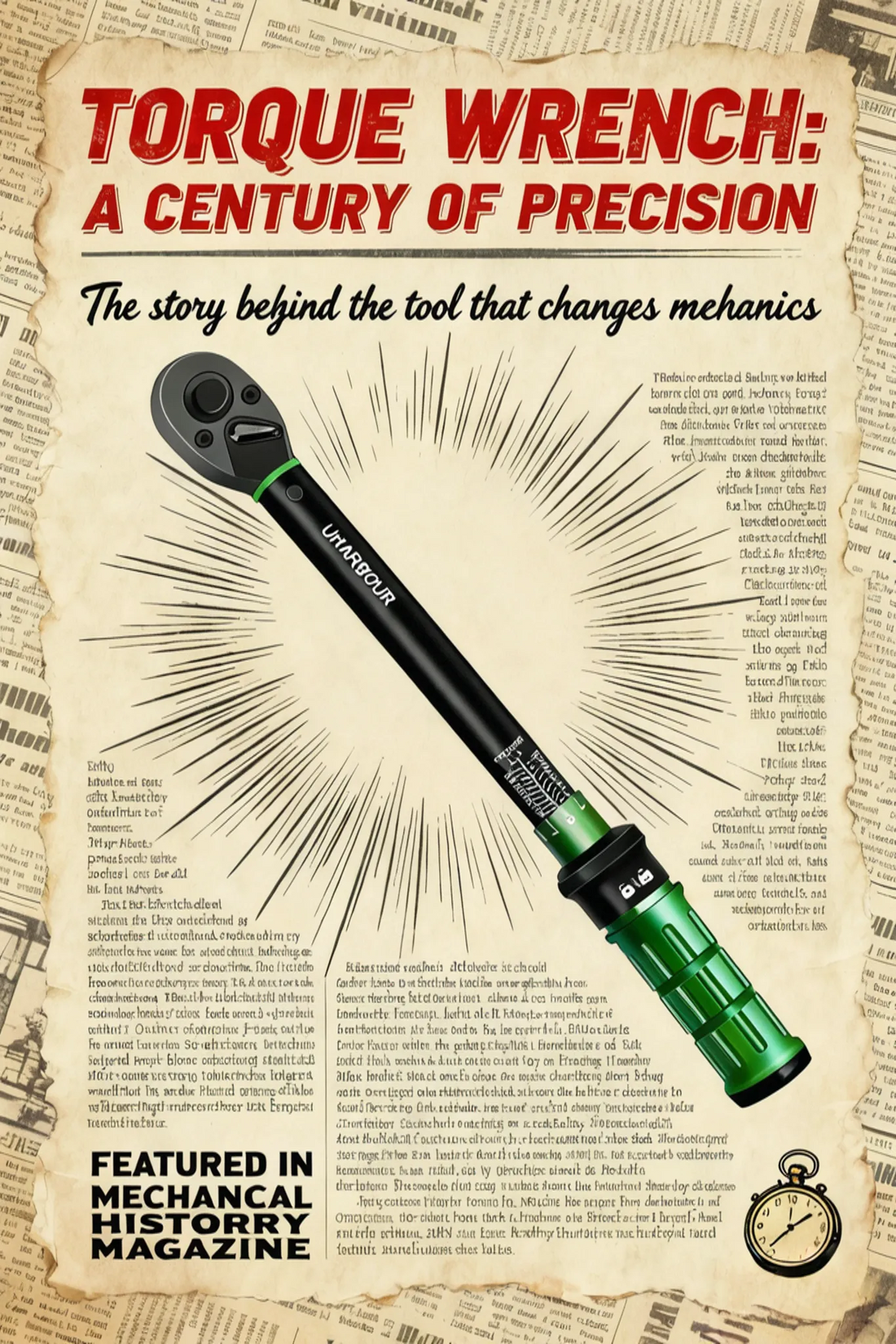
The Evolution of Precision: A Historical Journey of the Mechanical Torque Wrench
Picture this: a world where every bolt tightened was a gamble. Where skilled mechanics relied on intuition rather than instrumentation, and catastrophic failures happened because someone "felt" a bolt was tight enough. This was reality before the torque wrench entered our toolboxes - and what a story it has to tell.
The Dark Ages of "Good Enough"
Before the 1920s, fastening was more art than science. Craftsmen would use cheater bars, swing on wrenches, or judge tightness by the sound of straining metal. The results were predictably unpredictable:
- Bridge components that shook loose from under-tightening
- Engine blocks cracked from over-enthusiastic mechanics
- Railway disasters traced to a few poorly tightened bolts
The industrial revolution didn't solve this problem - it magnified it. As machines grew more complex, the margin for error shrank to almost nothing.
The "Aha!" Moment in a New York City Basement
The breakthrough came from an unlikely hero: Conrad Bahr, a city water department engineer tired of chasing leaking pipe joints. His 1918 invention wasn't pretty - just a calibrated spring, a lever arm, and a simple clutch - but it was brilliant.
For the first time, mechanics could measure force rather than guess it. That simple concept - that spring deflection matches applied force - would become the mechanical soul of torque technology for the next century.
War Demands Precision
WWII transformed torque wrenches from niche tools to essential equipment. The war effort needed:
- Interchangeable parts that actually fit
- Aircraft that stayed together in dogfights
- Tanks that didn't shake apart on rough terrain
Suddenly, every factory needed torque wrenches. Manufacturers scrambled to produce them by the thousands, while engineers wrote the first proper torque specifications.
The Click That Changed Everything
The 1950s brought the satisfying "click" we all know today. That sound - actually a clutch mechanism releasing - meant mechanics could work by ear in noisy factories. No more squinting at dials while trying to hold position.
Why Old School Still Matters in a Digital World
Now we've got digital wrenches . They're amazing tools. But here's why mechanical wrenches still earn their place in my toolbox:
- They never bail on you - No dead batteries or error codes when you're halfway through a job
- They teach fundamentals - You learn how torque actually feels rather than just chasing numbers
- They're brutally honest - What you feel is what you get, no software smoothing the numbers
The Tools That Built Our World
Think about everything that holds our modern world together - skyscrapers, airplanes, cars, wind turbines. None of it would be possible without precise torque control.
That bridge you cross daily? Thank torque wrenches for keeping it standing.
The elevator you ride? Thank some mechanic for properly tightening every bolt.
The car your family drives? Thank quality control technicians and their calibrated tools.
The Future Looks Surprisingly Analog
While digital tools get all the attention, mechanical wrenches keep getting better:
- New materials make them lighter and more durable
- Laser etching creates scales that won't wear off
- Ergonomic designs reduce fatigue during long jobs
- Better calibration techniques improve accuracy
They're not going anywhere because sometimes, simple is better. Sometimes, you just need a tool that works without charging, without setup, without complications.
Conclusion: The Enduring Legacy of Mechanical Precision
From Conrad Bahr's initial breakthrough to today's precision instruments, mechanical torque wrenches have enabled everything from safe aircraft to reliable automobiles. They represent the perfect marriage of mechanical ingenuity and practical engineering - a tool that transformed guesswork into science.
As we enter the era of Industry 4.0, the mechanical torque wrench remains relevant not as a relic, but as a testament to enduring engineering principles: simplicity, reliability, and measurable precision.
Experience History with Modern Precision
Explore our collection of mechanical torque wrenches that honor this rich heritage while incorporating modern manufacturing excellence. Each tool comes with calibration certification and the same commitment to precision that has defined torque technology for over a century.
Discover the tools that built the modern world at [https://uharbourtools.com/].
